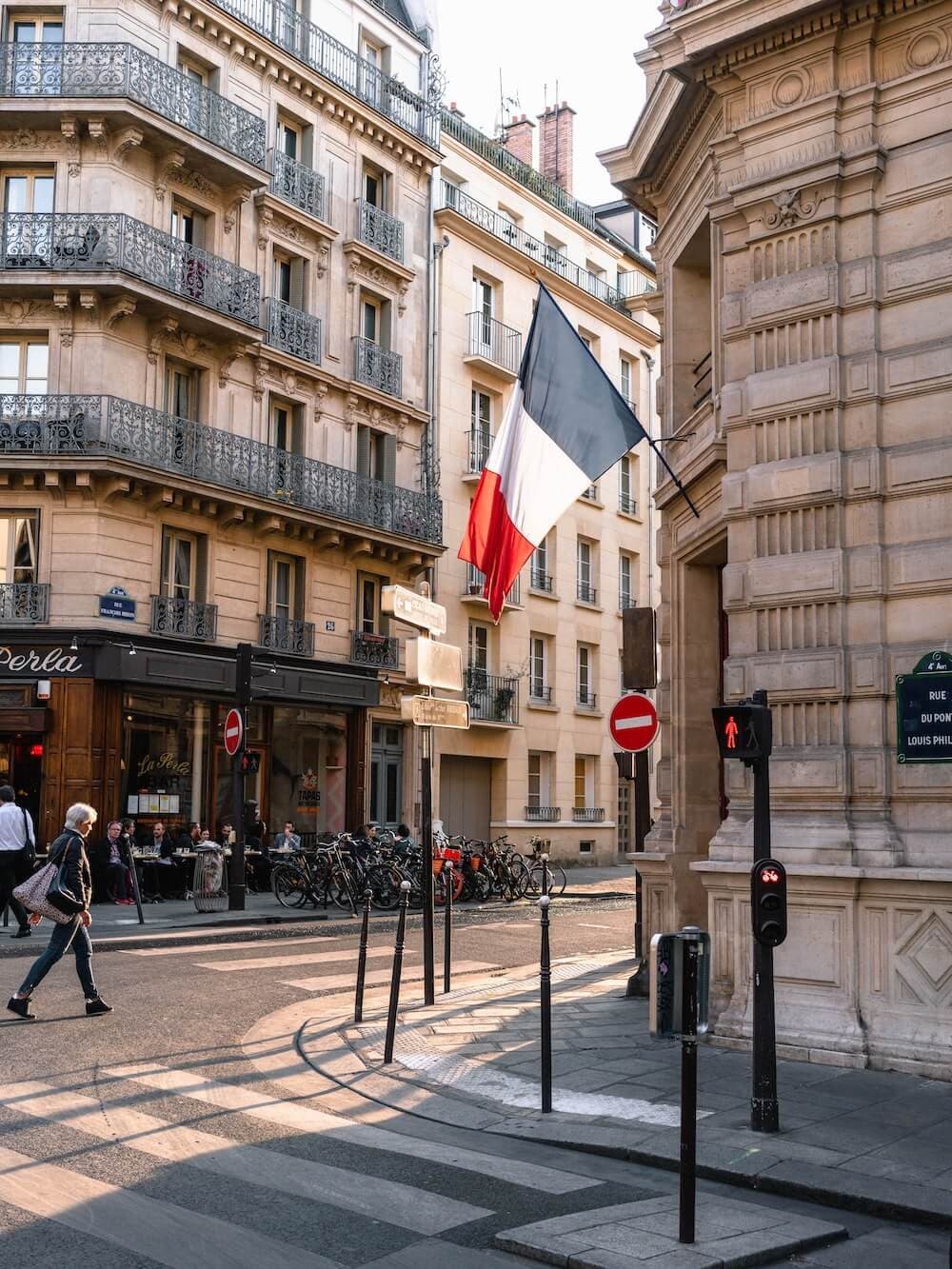Prior to departing on a 7 week journey in France, I had plans to practice my French, immerse myself in the culture, find space for thinking and writing, and to satisfy the deep curiosity of a soul urge of mine. As always when I travel, I remain open to portals to my ultimate destiny in this life. It was the first time I had traveled abroad solo for that period of time and I have to say that I learned a lot about what makes for a joyfully balanced life, the meaning of travel, the soul's journey, and the limits of my preferences for introversion and extraversion.
On the finals days of my journey in Europe, I had found this book by contemporary philosopher Alain de Botton called "The Art of Travel" in Hatchard's, a distinctive bookstore in London. The book is a collection of the reflections of famous old world travelers such as Alexander von Humbolt, Gustave Flaubert and Victor Hugo.
There was a chapter segmented off as the motives for travel. Flaubert, as a young writer, dreamed of visiting Egypt, riding a camel and falling in love with an Arabic woman. He found himself enchanted with things in Egypt as simple as a front door or a donkey taking a shit on the side of the road.
Flaubert had spent all of his life in France, and he described feeling tired of French culture and felt that in his soul, he was not really a French person at all. He felt bored of the French bourgeoisie and its extreme prudery, snobbery, smugness, racism and pomposity. The more time he spent in Egypt, he felt that the middle east lent values that were more aligned with his personality. He proposed that one's nationality ought to be in the country that one was attracted to, not the one he/she/they are born into. (By that definition, I believe I am Phillipina. But I will save those thoughts on that for another post.)
In my survey of why people travel, I have found that the most common way that people travel is to book two weeks somewhere, eat food and to entertain oneself by looking at scenery and visiting museums. It felt validating to me that this author was traveling with the intention to break out of the environment which has shaped who he is, not just in an escapist fashion, but it was about discovering and incorporating a new identity.
Flaubert studied the local customs, language and history within three days of arriving in Alexandria, Egypt. Like Flaubert, in my down time from seeing my clients online, I was determined to absorb and practice the French language and to drawing patterns in the customs of the French people. I had been warned that the French is particular about their use of language and can be flagrantly snobby towards outsiders. My experience with that is that most everyone was very nice to me and was willing to engage in A1 level French for the sake of my practice. But it's true, you cannot ask for meat to be cooked bien cuit, even if it's a burger (I couldn't digest raw hamburger meat without days of diarrhea, unfortunately).
Like Flaubert, I found amusement in what the locals would find banal. In Lyon, lunch was served in every restaurant between 12h30 and 13h30, and if you decide to arrive before or after that, they won't serve you, "service pour le déjeurne est fini". Thank god for traiteurs, which were open for longer, always served high quality take-out food. I would describe a traiteur as having the same concept as a delicatassen, the German word that we commonly use in North America, when the jews brought this concept into the United States culture.
The other thing I found amusing was the fact that most restaurants served espresso and croissants for about an hour before their lunch service. But they were always scanty with their croissants. There was never enough for the number of people who wants them. Supply chain issues? Labour shortage? Or just a French custom? Probably the latter given the overall pattern I've observed.
As I had spent nearly three weeks in Lyon, I had much time to learn about the history of the city. Aside from enjoying the milder temperament of the Lyonnaise people, and the perfection in food that the French are known for, for non-touristic price points, my soul had good intuition around wanting to be in the miniature version of Paris. Lyon was previously a Roman city, which emerged as the largest manufacturing center in all of Europe for silk textile. Through the river port of Marseille, they traded with China, eventually developing a rich relationship with that part of the orient. China liked Lyon so much that it opened its first university outside of China in Lyon in 1921. 473 male and female Chinese scholars studied everything from the arts to the sciences here while immersing themselves in French language and culture. My soul felt very satisfied to learn of this. The tracing of the Chinese diaspora is a part of the satisfying painting I am attempting to compose of my identity.
However, there is little evidence of the love of Chinese culture in Lyon today. I actually did not discover Lyon's history with China until the last days of my time in Lyon. I did not find any Chinese restaurants of the kind I found in London, or my homewotn Vancouver, which was creatively and intentionally done. There is no Chinatown in Lyon. I found one market stand that sold takeout-style fried rice and noodles. I was told by the Hong-kongese owner of a cafe named Yum Cha, that the French have admiration for the refinement of Japanese cuisine but not for Chinese, and his menu reflected such. I felt deceived by the name of his restaurant.
The 7 weeks I spent away in France was not always idyllic, although there were moments of that. It was mostly a mental challenge of navigating a language and culture that is not my own, while alone. I felt ready and had wanted such a challenge before I had left Vancouver. What I was not expecting was that mental challenge of being left in one's own head much more than I knew what to do with. Without my collection of books, friends, hobbies, which I knew gave me joy, I was left with merely the environment of the city I was in. But for anyone who has traveled enough, restaurant dining, and museums are only entertaining for so long. Ski season in the Alps region of France was over. I was turned off from scuba diving in France because I had never had a divemaster so determined to see that I was unskilled in scuba diving. (Typical French custom of the attitude and treatment of outsiders!) 7 weeks of solo travel was a lesson in the amount of solitude that is enjoyable for me. Keeping in touch with friends via WhatsApp and social media has its limitations. Meeting others abroad with whom there are cherished mutual interests were rare moments.
I found validation in Alexander von Humbolt's reflection that even in the most fascinating cities, he has been occasionally visited by the overwhelming urge to take the next flight home. In Vancouver, I had developed a routine around nature, movement and sports, a carousel of diverse and loving friends, and a rich and rewarding career and business that kept me busy and fulfilled. At first, being away from all that abundance was refreshing, but when things settled into a routine of trying to find enjoyment in cuisine and consumerism, itinerary development, wandering, and schlepping my suit-cased life across trains and planes, I grew listless and eager to go home and settle back into my home and routine so I could channel the things I was experiencing into something meaningful. World travel is not always what it's cracked up to be, I quickly became repulsed by the image-obsessed behaviors I observed in Paris, Cannes, Monaco, and I missed the ecosystem I had built in my hometown, which satisfied my intellectual, heart-centred relating, and athletic needs. 7 weeks in Europe was a rich lesson in my personal needs for the kind of balance I need for a satisfying life.
7 weeks in France was also a foray into the experience of boredom. In fact, boredom was my biggest fear prior to embarking on my trip to Europe. Upon my return, I read that boredom is the soul saying "what's the use?". There were certainly prolonged moments of this kind of self-talk. Although I find the language and customs fascinating, I didn't identify with French culture. I didn't find much celebration of my Chinese heritage in this country. Psychotherapy is much more stigmatized in this country than it is in my hometown, so I was not met with enthusiasm when I explained that I was a psychotherapeut.
I recognize that "what's the use" is the language of the psychological state of depression. I believe boredom emerges out of the inability to ask questions or find answers from my environment. There is a risk that in travel you reach a road block, and yet a leg of the journey still remains. In travel, you run the risk (or freedom) that everything, or perhaps nothing is interesting.
In my melancholy, I deeply resonated with Alexander von Humbolt's reflections on visiting Madrid. He was invited to a conference in the capital city of Spain, and despite being told of it's monuments, churches, museums, fountains, plazas and shopping streets waiting to be discovered, felt at risk of being seen as a tourist to be gawked at with pity. He described an overwhelming wish to catch an early flight back home.
Home sicknesss, travel fatigue, or loss of meaning and purpose, are all risks that come with the reward and excitement of novelty and adventure that comes with travel. But people all over the world continue to travel with increasing frequency to more far-flung places. Because despite the risks one can always emerge with experiences to integrate into their identity. When asked where he came from, Socrates said not from Athens, but from the world. Real travel is rife with difficult moments to endure. And that is the philosophy towards travel that makes you more worldly.

